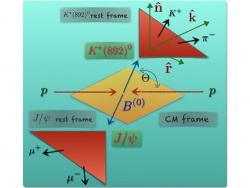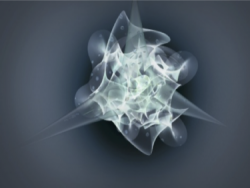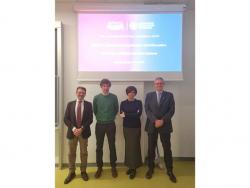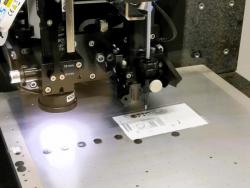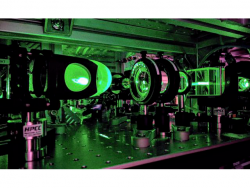- Home
- Department
- Research
- Teaching
- Post Graduate Studies
- Knowledge Transfer
- How To
Photon-counting Edge-illumination Phase-contrast Imaging
Research Strand:
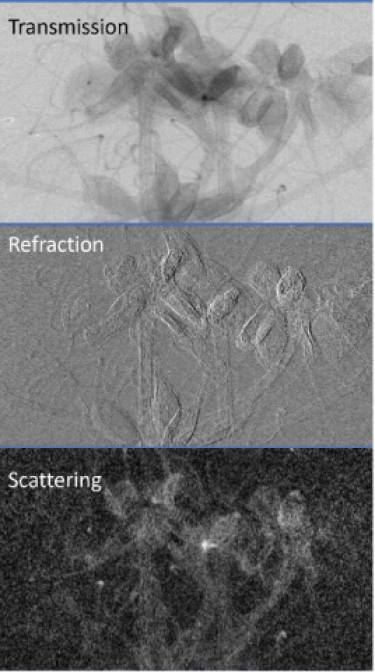 The penetrating power of X-rays has been used since their discovery for studying the inner structure of matter. In imaging applications, both in clinics and industry, X-ray systems rely on attenuation differences within the investigated object, which translates into contrast in the final image. In most modern systems, X-rays are detected with bidimensional integration detectors, where the signal is proportional to the energy of impinging X-rays.
The penetrating power of X-rays has been used since their discovery for studying the inner structure of matter. In imaging applications, both in clinics and industry, X-ray systems rely on attenuation differences within the investigated object, which translates into contrast in the final image. In most modern systems, X-rays are detected with bidimensional integration detectors, where the signal is proportional to the energy of impinging X-rays.
When investigating biological samples or light materials, such as plastic compounds, the contrast due to X-ray attenuation can be extremely faint, thus not allowing the visualization of details of interest. Nonetheless, by using an alternative contrast mechanism, referred to as phase-contrast and due to the small-angle refraction induced by the sample, details visibility can be significantly enhanced. At the same time, the use of photon-counting detectors featuring multiple energy thresholds (spectral detectors) allows obtaining quantitative density and concentration maps of specific elements present or introduced (i.e., contrast media) within the sample.
In this framework, the PEPI (Photon-counting Edge-illumination Phase-contrast Imaging) project is developing a novel imaging system based on spectral photon-counting detectors and the edge-illumination phase-contrast technique. The system aims at maximum flexibility, allowing the implementation of spectral and phase-contrast imaging in both planar (2D) and tomographic (3D) geometries. PEPI’s targets are ex-vivo biological samples in the centimetre scale and light materials, such as additive manufacturing products or micro-structured objects.
PEPI’s imaging system originates from two Young Researcher Grants funded by INFN (National Scientific Committee 5 – calls 18203/2016, 22260/2020) awarded to two scientist presently working at UniTs. The system is currently jointly used and developed by UniTs and INFN researchers, in close collaboration with Elettra Sincrotrone Trieste and with the University College London (UK).
Info
Last update: 02-17-2025 - 12:53


